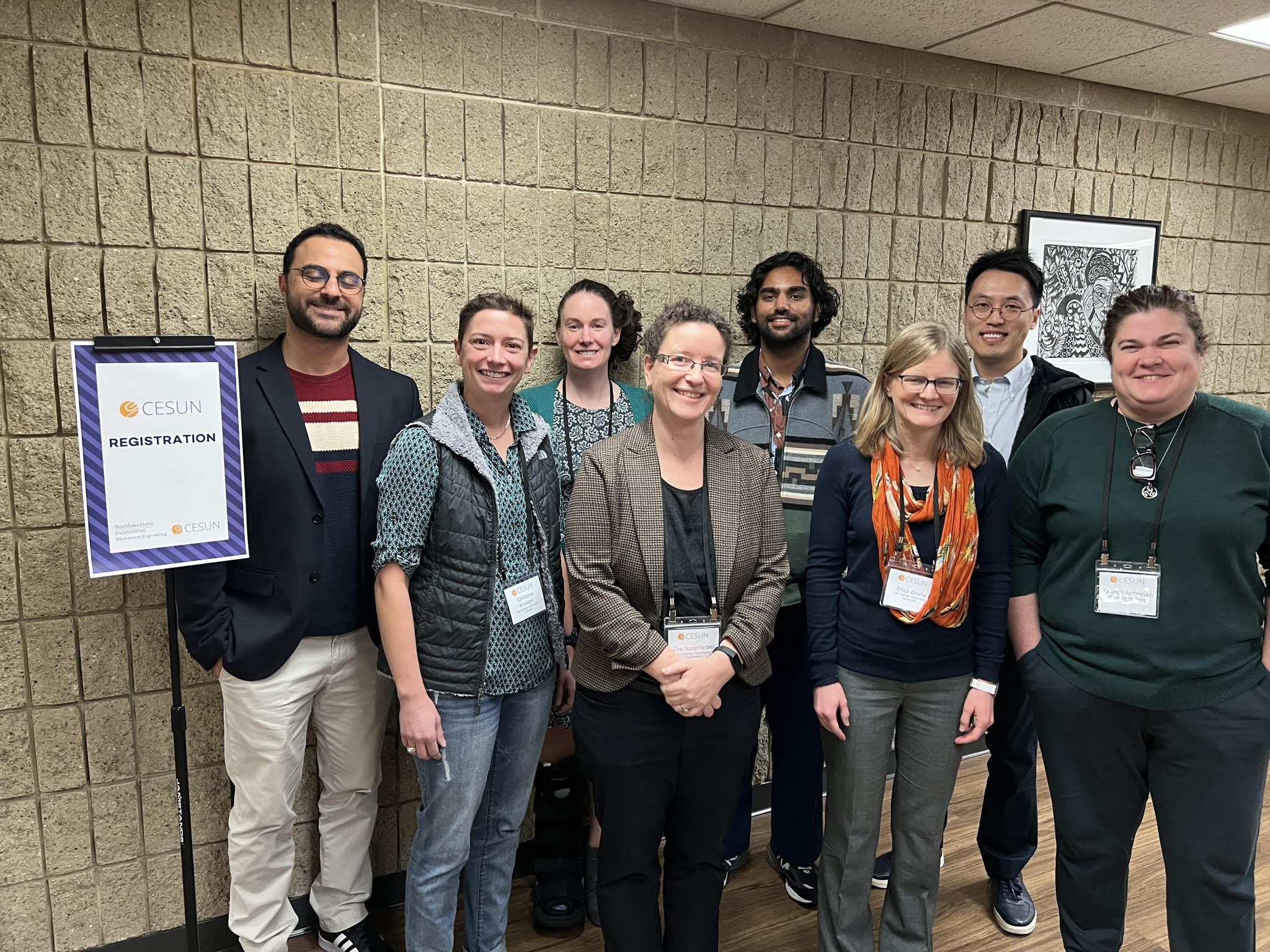Every second year, the Council of Engineering Systems Universities (CESUN) hosts an International Engineering Systems Symposium where scholars can present their research and discuss current challenges in engineering systems, socio-technical systems, and the policy design and governance of complex systems. GW Engineering was well represented at CESUN’s 9th International Symposium, held on November 6 and 7, 2023, at Northwestern University, including conference and society leadership by faculty members from the Engineering Management and Systems Engineering (EMSE) Department.
CESUN was founded in 2004 by a small group of like-minded scholars to foster a community of universities to work together in developing engineering systems as a new field of study. The EMSE Department has been pivotal in CESUN, since hosting the International Symposium in 2016. Now in 2023, EMSE Professors Erica Gralla, Zoe Szajnfarber, David Broniatowski and doctoral students Lauren Bateman, Aditya Singh, Chris Krueger, Zaid Kbah, Weijie Pan, Tianye Wang, and Kathryn Gilligan all participated in a variety of ways.
Interconnected, complex systems are at the heart of today’s looming socio-technical challenges, including climate change, artificial intelligence (AI), public health, data, privacy, and many more. As one of two Program Chairs, Gralla prepared an agenda covering a range of topics from systems and modularity to infrastructure and resilience to address these issues. Szajnfarber and Broniatowski were panelists in the first plenary session of the conference, “Designing Complex Systems for Uncertainty, Sustainability, and Resilience: The Case for Flexibility,” which explored how to design complex systems for flexibility to adapt to an uncertain future.
The symposium’s agenda featured a session on day one focused on AI in systems, an area where EMSE is leading the way. During this session, Krueger presented the study, “All Models Fail, But Some Are Useful: Enabling Informed Decision-Making by Non-Expert Acquires of AI-Embedded Systems,” which was a collaborative effort between Krueger, Szajnfarber, and members of GW Engineering’s Computer Science Department, Ph.D. candidate Justine Manning and Professor Robert Pless. Leveraging their work as Designing Trustworthy AI Systems fellows, they examined ways to enable non-AI experts to evaluate AI model behavior and make informed decisions about when to adopt such models.
Bateman and Pan also presented their work on day one. For their contributions “Pushing the Limits: Changing Organizational Structure in IFRC’s Humanitarian Respond Operations” and “Assessment of mobility decarbonization with low-carbon policies and EV incentives in the US,” respectively, they both returned to GW with awards.
“These awards show that our students are doing cutting-edge research that speaks to both scholars and practitioners of systems engineering, and they are pushing the conversation forward on solving some of our most complex systems challenges,” said Gralla.
Bateman received the Best Presentation for Broader Impact award for her paper in which she analyzed the changes made to the organizational structure of a major international humanitarian organization in 13 recent emergency response cases. The nature of these architectural changes shed light on the limits of the original structure by demonstrating when and why it needed to change. Her findings spread awareness of these limits as well as the opportunities for structure change to enable adaptation to novel emergencies and localized needs.
Pan was awarded second place for Best Poster for his paper on how state-level low-carbon energy strategies affect national-level decarbonization and long-term planning for power generation capacity. His analysis of each state highlights the differences in state-level electricity demand, emphasizing the importance of investigating inter-state collaborative energy strategies. The insights from this study demonstrate to federal and state-level policymakers the importance of tailored state strategies for facilitating the entire decarbonization process in the U.S.
By presenting their research findings at CESUN’s 9th International Symposium, these faculty and students from the EMSE Department significantly aided in furthering the conversation around solutions to complex systems challenges. The department will continue to play a key role in the council and its focus on developing solutions to pressing challenges in engineering systems as Szajnfarber also began her term as Chair of CESUN during the 2023 conference.



